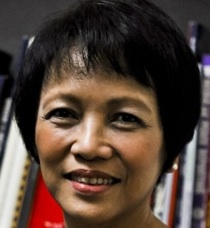SUMMARY
This is AI generated summarization, which may have errors. For context, always refer to the full article.

It seems hard to imagine the presidency in this country without the power to dangle, give or withhold pork. The sad thing is: it has made our politics cynical, starting from the top.
It was a general practice for the predecessors of President Benigno Aquino III to rely a lot on dispensing pork to get things done in Congress. Money has become the language used to convince senators and congressmen to pass priority bills.
Aquino continued this practice to a lesser extent and he combined his good intentions with pragmatic politics when he created the disbursement acceleration program or DAP. Almost 10 percent of this multi-billion peso fund passed through legislators.
But Aquino has an opportunity to change this cynicism and patronage-driven politics—and tremendous public support is on his side. More than a year ago, the President told me in an interview: “We’re changing the status quo. We’re disturbing so many people’s rice bowls.”
This is President Aquino’s big rice-bowl moment.
After all, there is power beyond pork. There is life outside dispensing funds to senators and congressmen.
Creativity, line-item budget
To help me navigate this terrain, I asked some people this question: what are the levers a president can use outside pork?
Salvador Enriquez, former budget secretary, reminds me that the original budget law is a presidential decree crafted during the authoritarian rule of Ferdinand Marcos. “The powers are biased for the President,” he says. “So a lot lies in the creativity of the President. No matter how the budget law is worded, the power to execute is the power of the executive. The President can choose to execute a project or not.”
The power to decide and implement projects should not be taken for granted. It is a check on the legislative’s power of the purse.
For constitutional law expert Pacifico Agabin, the power to recommend (the budget) enables the President to hold sway over the legislators. “It involves a lot of logrolling,” Agabin points out, “because he can favor his party-mates and deny access to his opponents.”
Agabin, who represents the Integrated Bar of the Philippines in a petition questioning the constitutionality of the DAP before the Supreme Court, favors line-item budgeting. The former UP law dean explains: “Line-item budgeting will involve asking the budget secretary for approval of pet projects. The President can use this; the budget secretary will obey what the President tells him.”
It appears ironic but Agabin sees a more powerful president once the pork is abolished and line-item budgeting is practised. “He (the President) will have more power over the congressmen because he can approve and veto.”
‘Bring case to the people’
For his part, Jose Almonte, national security adviser to President Ramos, says Aquino should continue to “bring his case to the people.” How? “He should explain his reform bills to the people so that the constituents of various congressmen will support these. And they will tell their congressmen to vote for these bills.”
If our politics is elevated to this level, then the people will not re-elect congressmen who failed them.
Almonte continues: “Pork is only used for reinforcement. The heart of the matter is the rationale of the bills, that they serve the common good.”
Pending bills include those on freedom of information, political party reform, and promotion of fair competition. Within Aquino’s term, a bill that will create the new Bangsamoro entity, a result of a peace deal with the Moro Islamic Liberation Front, is expected to be filed.
There are other tools in the presidential arsenal, of course. He has the power to appoint and dismiss. He has vast influence. We saw this in the recent mid-term elections when most of the administration candidates for the Senate—whom he tirelessly campaigned for—won.
It will be pity if Aquino limits himself to the usual, the overused source of power, the pork.
His rice-bowl moment entails him to see beyond his honesty and character: to reform the system that provides so much discretion to politicians over certain funds so that by the time he steps down from office, he would have changed the environment.
His rice-bowl moment needs him to think beyond his remaining years in office. What if the next president does not share Aquino’s lily-white intentions? What if he or she is corrupt?
Party-list Rep. Walden Bello put it well in his comment on Aquino’s “I-am-not-a-thief” speech: “I have no doubt about the President’s intentions…but the purpose of political institutions in a republic is to ensure the furtherance of the public good whoever is in power and whatever is his or her character.” – Rappler.com
Add a comment
How does this make you feel?
There are no comments yet. Add your comment to start the conversation.